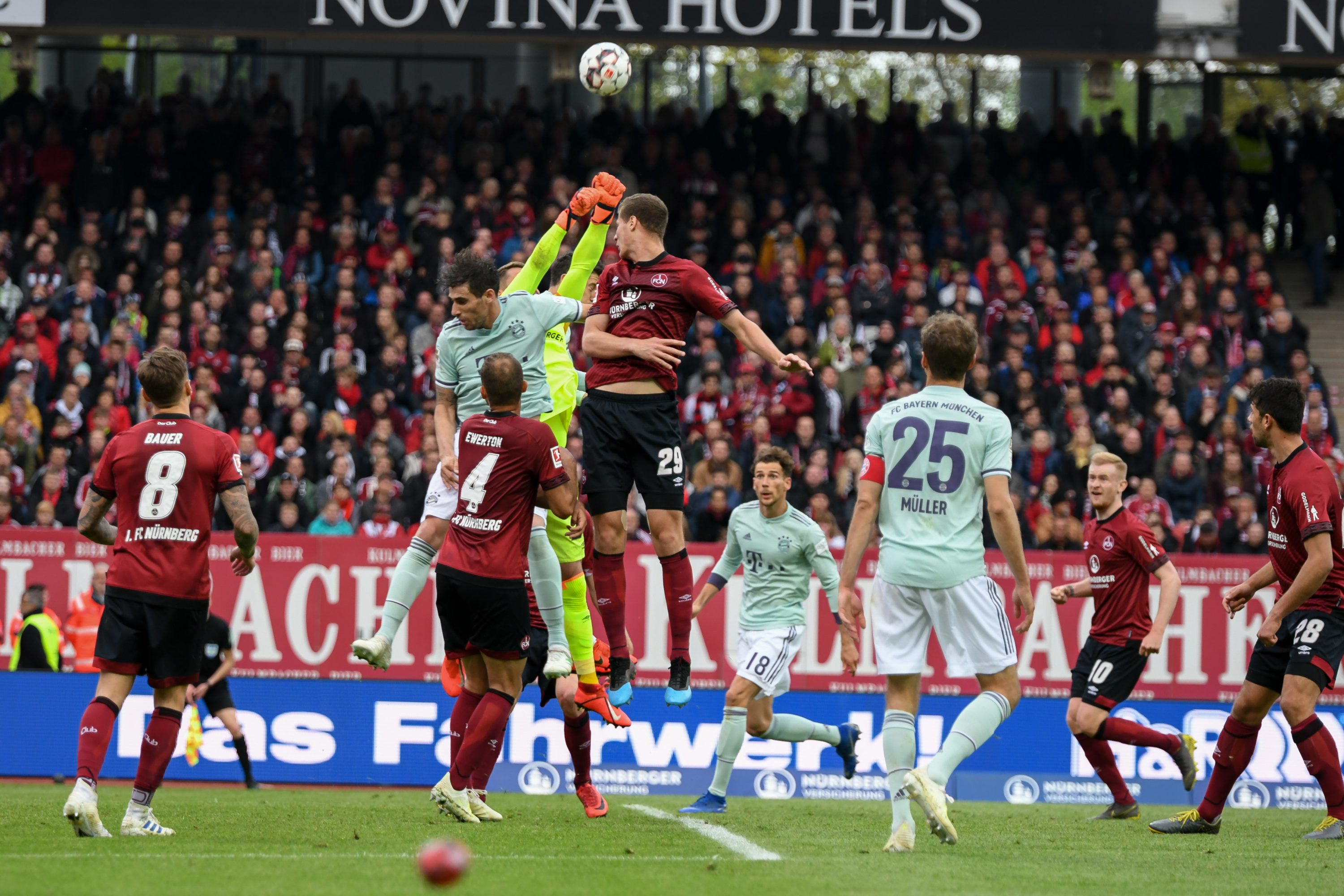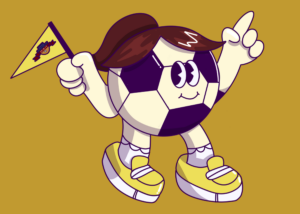After two months of waiting, the Bundesliga is set to return on Saturday, May 16th. Fans are in for a treat, with the 156th Revierderby between Borussia Dortmund and Schalke 04 kicking off top-flight football once again in Germany. Current table leaders and champions Bayern Munich headline Sunday’s action, with Werder Bremen and Bayer Leverkusen closing out Match-day 26 on Monday.
With Covid-19 plaguing the world, there have been few bright spots, especially in sports. Yet, the return of the Bundesliga provides fans with a much-needed escape and something to look forward to. While many fans eagerly await the return of the Bundesliga, notable opposition has come from politicians like French President Emmanuel Macron, players such as Sergio Agüero and Danny Rose, and teams like Eibar in Spain.
Bundesliga fans will not be the only ones tuning into this weekend’s action. As Europe’s first elite league to return, soccer fans around the world and fans of other sports will sit down to watch their first Bundesliga game. Additional, other professional leagues will be looking to build off the Bundesliga’s model and restart themselves. With millions of new people tuning in, here is everything you need to know about the Bundesliga’s return.
Is there a title race?
Unlike previous seasons, Bayern Munich is not running away with the league. The defending champions are fending off Borussia Dortmund, RB Leipzig, and Borussia Mönchengladbach who are all within six points of the top of the table.
The 29 time Bundesliga champions, Bayern Munich, look set to win their eighth straight league title, but it will not be a walk in the park. With a four-point cushion over rivals Dortmund, Bayern can afford to lose one of their remaining nine games but have little room for error with a hungry pack determined to knock them off their perch. The two-month break has provided Bayern with a boost, as Robert Lewandoski and Ivan Perisic return from injury. The reigning champions are looking strong coming into this weekend and will be a force to reckon with.
Borussia Dortmund sits in second and is looking to win their first Bundesliga title since the 2011-12 season. Last season, Dortmund fell short of the title, pushing Bayern until the last game of the season. BVB boasts an electric young squad, with Norweigan striker Erling Håland and England international Jadon Sancho headlining their attack. The pause could not come at a worse time, as Dortmund was enjoying a red hot run of play before the shutdown. It will be interesting to see how BVB handle playing at home without the mesmerizing Yellow Wall behind supporting them.
Five points behind Bayern sits RB Leipzig in third place. Die Roten Bullen, the Red Bulls, have enjoyed their recent promotion to the Bundesliga four years ago, finishing second their first season in the top-flight. With two draws before the league was postponed and Timo Werner set to change clubs this summer, Leipzig is looking to take advantage of his talents this season and win their first Bundesliga title.
Sitting in fourth, six points behind Bayern, Borussia Mönchengladbach make up the rest of the chasing pack. Leading the pack at one point in the season, Gladbach fell out of form but has bounced back and still poses a threat to Bayern. Die Fohlen, the Foals, are looking to return to the top of German football for the first time since their amazing five titles in the 70s.
Will there be a difference in play?
With 96 days between games played there will, of course, be a change in form. While teams are used to a few weeks off for winter break, this is something they have never gone through before. However, you should not be worried about a huge drop in play. Before returning to team practices and training camps, players were keeping themselves in shape at home with individual workouts and team calls. In addition to player fitness, teams will have to play inside empty stadiums. This is not the first time teams have had to play behind closed doors, with Eintracht Frankfurt playing two games without fans during their European campaign before the league was postponed. The lack of fans will affect high energy teams who are reliant on their fans’ support, but it will not have a huge impact on the overall playing style of teams.
What will game days be like?
Unlike the Premier League, there was never any thought of playing games at neutral stadiums, with league officials labeling it an unrealistic idea. Instead, teams will play out of their home grounds and will be required to follow a strict gameday plan. On game days, there will be a maximum of 322 allowed in and around stadium grounds. This group of people has specific allocations for players, coaches, officials, medical staff, media, security, team delegates, and league officials to name a few.
Once again, there is an issue of playing in front of empty stadiums. However, teams and the league have found creative ways to make up for the lack of live support. Fan clubs have been allowed to send in posters and banners to be hung up around the stadium for each game. Borussia Mönchengladbach took this one step further and added cardboard cutouts of their fans in seats across the stadium, with the 20 € paid by fans going to local businesses and charities. While banners and cutouts are allowed, the league has asked clubs to refrain from installing any kind of artificial noise system to simulate match day atmosphere.
On game days, staff will arrive as early as eight hours before kick-off. Members of the grounds crew arrive first with others arriving periodically throughout the day. Players are expected to arrive 90 minutes before kick-off and will travel to the team on multiple disinfected buses, with the exception of the home team who are allowed to drive to the stadium but must do so alone.
Inside the stadium, players are expected to maintain social distancing protocols and use the hand sanitizer stations littered throughout the facility. Players will change in batches with the starting squad using the dressing room first, followed by the reserves. In the changing room, players and staff are expected to leave when finished and wear face masks at all times.
During the game, those not on the field will not be required to wear facemasks, although they must do so when they leave the pitch at halftime. This does not change after the game, with players expected to go show and wash their own kits at home, rather than at the stadium. Post-match press conferences will be conducted over calls, eliminating unnecessary human contact.
How is testing and staff safety being handled?
The public has voiced their concern over whether or not players and staff would be receiving preferential treatment when it came to testing. Yet, the Deutsche Fuβall Liga (DFL) has assured German citizens that their testing will not affect the public in any way. The DFL is not drawing from public resources rather paying for the tests themselves.
Between later April and May 4th, the DFL conducted 1724 tests with 10 of those cases coming back positive, a 0.58 percent positive rate. Most clubs have implemented a 14-day quarantine period for those who test positive, electing against quarantining everyone who had come in contact with said person. The German government has agreed with this course of action, yet, federal states in Germany have control over what process is followed in their state. In the case of second division side Dynamo Dresden, who had three positive cases, the entire team and staff were put into quarantine. The general consensus around Germany is that most local governments will be more lenient in these situations. If full teams are forced to quarantine, the Bundesliga’s plan to finish by June 30th will be in serious question.
As of May 8th, Bundesliga clubs have been in an isolated training camp, preparing for their first game back. Once the season restarts, players will be tested twice a week. There will be one test conducted before each game. In the case of a two-game match week, the two tests will occur before those games. The head doctor of each team will go through player and staff results before each game and determine if they are fit to play and be in the stadium.
Players will have the option to return home but only if they follow strict guidelines. At home, they are not allowed to have physical contact with neighbors or anyone in the household and cannot use public transportation. Families members must also follow these guidelines and are subject to voluntary testing.
With all 10 games spread out across the next three days, all eyes will be turned towards the Bundesliga. Will the Germans finish the seasons without any unexpected hurdles? If the Bundesliga’s restart works, when can we see other leagues follow suit? These are just a few questions that loom on the horizon, with soccer fans and leagues hoping for the best. If you are missing soccer or live sports, the Bundesliga is a must watch this weekend.





